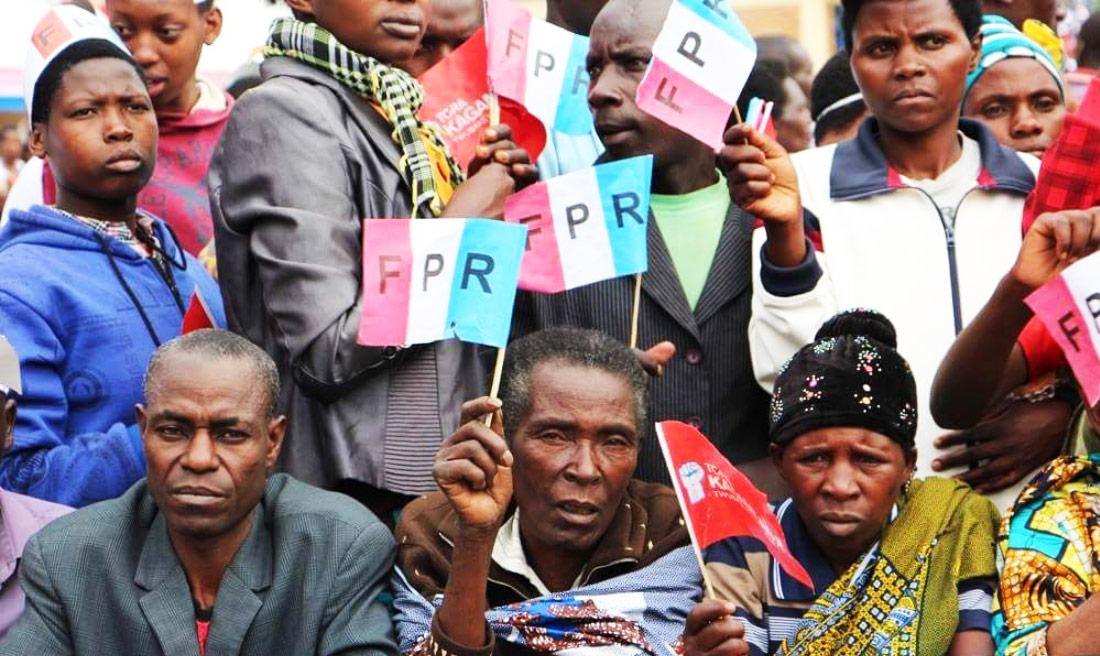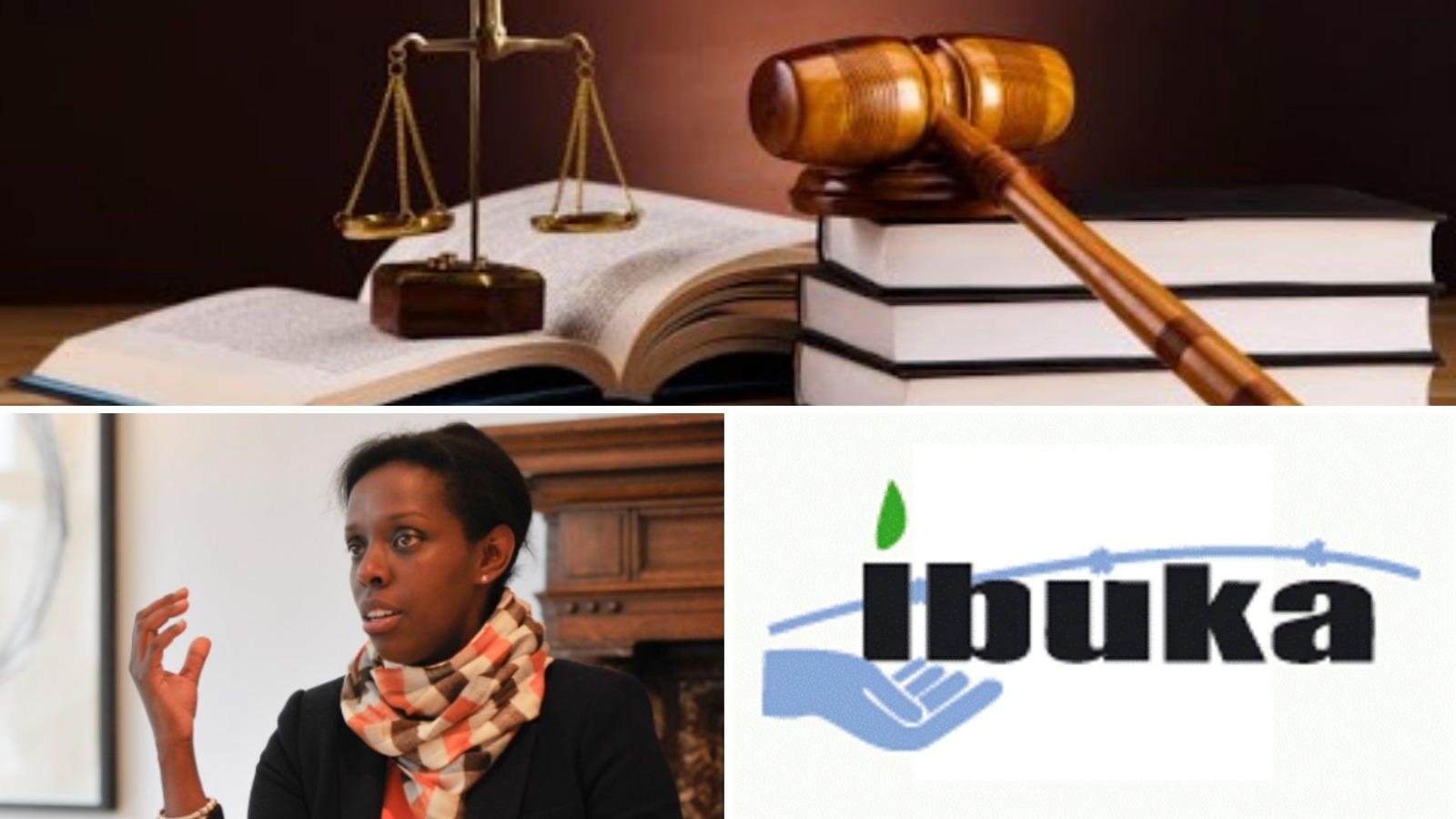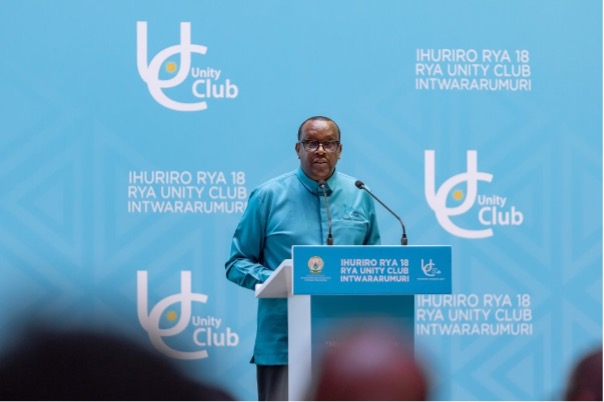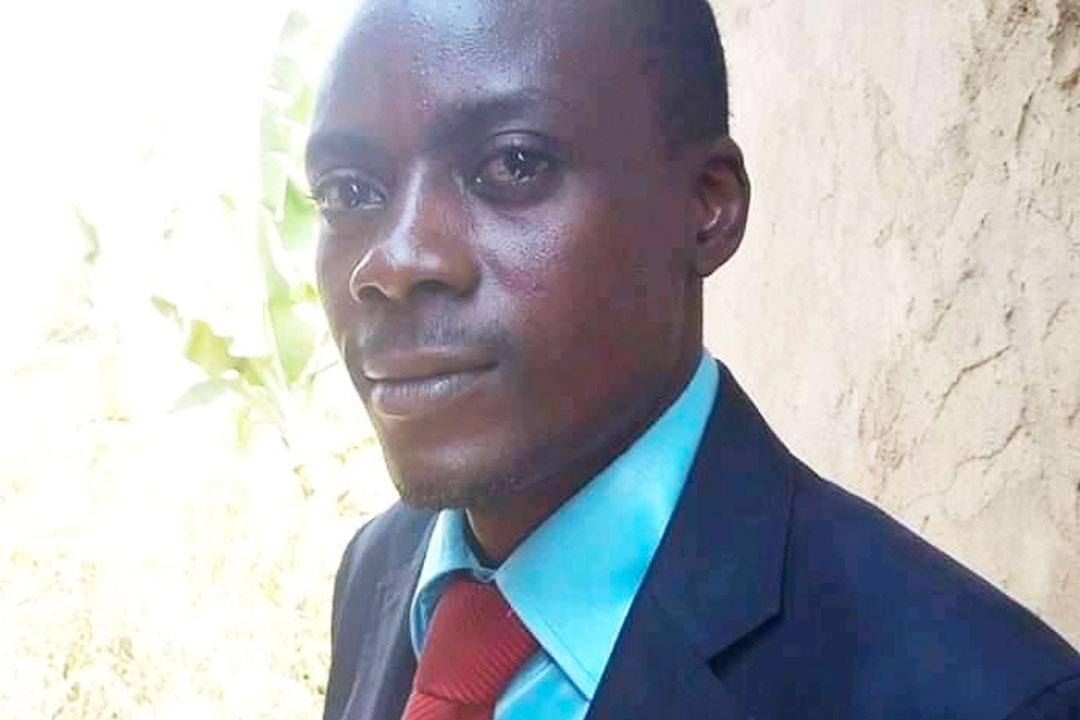The Republic of Rwanda was proclaimed on 28 January 1961. The republic was then confirmed later that year by a referendum on the 25th of September. During the 60 years of the republican regime, Rwanda has yet to fully enjoy true political life. Except for very brief and rare periods, this time is best characterized by the missed opportunities to bring about the freedom promised to the citizens and transform the country into a true functioning republic.
The Beginnings: 1961 – 1964
On 25 September 1961, alongside the referendum on the monarchy, parliamentary elections were organized. This was the first time that Rwandans could vote for their representatives in an election by universal suffrage.
With 77,58% of the votes, the MDR-Parmehutu (Mouvement démocratique républicain-Parmehutu) won 35 of that first parliament’s 44 seats, while the UNAR (Union nationale rwandaise) had 7 seats with 16,87% and the APROSOMA (Association pour la promotion sociale de la masse) got only 2 seats. The RADER (Rassemblement démocratique rwandais)’s meagre 0,33% of the votes were not enough to gain that party a seat in parliament.
During this first term, the constant threat of attacks from the monarchist Inyenzi, combined with the main political actors’ lack of political experience, quickly lead to a total sidelining of the opposition parties, leaving Parmehutu alone in the political arena. The last nail in the multiparty system’s coffin was arguably planted on 24 December 1963, with the execution of the UNAR’s and the RADER’s leaders following an Inyenzi attack in Bugesera on December 20.
In the ensuing 1965 general elections, the MDR-Parmehutu won all parliamentary seats. Rwanda had become a de facto one-party state and Parmehutu found itself without any real opposition. As often happens in this type of situation, internal rifts started to fester – eventually culminating in the 1968 crisis and the exclusion of many “deviant” party officials as a result of what was then called the “Guta Umurongo” phenomenon, or deviationism from the established party line. After 1969, the party was a mere shadow of its former self. It withered in this slow agony until the final blow came in the 1973 coup by General Juvénal Habyarimana. After the coup, the one-party state was enshrined in the 1978 constitution.
1991 – 1993: The Wind of Change From the East Reaches Rwanda
The end of the Cold war and the fall of the Berlin Wall brought major geopolitical changes in the world. In Africa, this was marked by the end the era of the one-party system. All over the continent, people were demanding more freedom and political participation.
Rwanda was not left out, and General Habyarimana had to accept reforms – in 1991, as a concession both to the dominant zeitgeist and to the realities of the ongoing war, the constitution was changed to allow for a multi-party system.
The period of 1991 -1994, though very brief, was one of unmatched political turmoil. By the end of 1992, an impressive number of political parties and partisan newspapers of all stripes had been established.
30 years later, with the benefit of hindsight and knowing all too well how the story ends, it has become conventional wisdom to explain how 25 years of single-party rule, novice politicians playing sorcerer’s apprentice, a bitterly partisan and inflammatory press and the continuing war in the country’s north made it all but impossible for Rwanda to achieve any outcome other than the horror Rwanda experienced in 1994.
1995–2000: Unfulfilled Hopes and Disillusions
After the 1994 war, life somehow resumed in the country. A so-called national unity government was put in place on 19 July 1994, and a Transitional National Assembly was sworn in on November 25th of that year.
At first, this parliament tried to function as a real parliament. Despite the situation in the country, there were still real political debates and major parties like the Republican Democratic Movement (MDR), the Social Democratic Party (PSD) and the Liberal Party (PL) were all vying for growth whilst trying to remain independent from the Rwandan Patriotic Front (RPF). The latter, however, had no intention of sharing the dividends of its military victory with anyone. The other parties had little recourse but to accept the meager scraps left to them by the RPF. The illusion of political pluralism was eventually dispelled on 17 April 2000 with the resignation of Pasteur Bizimungu and the takeover by General Paul Kagame.
From that point on, the RPF froze all semblance of political life in Rwanda. All political formations were brought under the auspices of a so-called forum of political parties, in reality a mere tool designed to help the RPF secretariat direct all political activities. The only tolerated political discourse was to be open support and praise for President Kagame. The RPF stopped acting as an ordinary political party. Quite tellingly, the RPF does not call itself a party, but “Umuryango,” literally “family.” Little by little, it captured the entire state apparatus and insinuated itself in all aspects of social life, to the extent that it is now almost impossible to differentiate between the RPF and the state. The political reality of Rwanda in 2020 is that of a state and a civil society totally controlled by the ruling party, with the state overseeing all political and social life according to the all-too familiar maxim of “Everything in the State, nothing outside the State, nothing against the State!”
When the extended RPF political bureau holds its meetings, the attendees include the president, the whole government, the parliament, the heads of the security apparatus, religious dignitaries and even the leaders of the other political parties. At a glance, the RPF more closely resembles an organized religion than a political party.
2020: New Beginning?
We finally come to 2020, a year that must have seemed very distant to the architects of “Vision 2020.” No doubt they would have preferred for that year never to arrive, so that nobody may make a true assessment and hold them accountable. But they forgot that 20 years is a very short time in the life of a nation, and today the results are damning. The country has underachieved on all its stated goals. Twenty years of personality worship and sycophancy have taken their toll on the political and social body of the nation. There is simply no true political life or activity in Rwanda.
The all-encompassing conception of the state is now at an impasse, and the rising generation of young adults born in the late ’90s and later, having grown up with the internet, is literally suffocating. Resolutely focused on the future, this new generation is not blind to what is happening elsewhere in the world. They therefore begin to ask hard questions for which the old guard has no answers, let alone the necessary intellectual tools to imagine new solutions. These young people are no longer satisfied by the usual platitudes along the lines of “we saved the country,” or dangling promises of an economic miracle that they constantly hear about but never seem to benefit from. Reality is now plain for all to see. The citizens of Rwanda, in spite of their best efforts at self-deception, are forced to admit that the official speeches on economic or social progress are completely divorced from the realities of daily life.
Rwanda’s national parliament offers a perfectly pathetic illustration of this separation from reality. This year, in the midst of an ongoing global pandemic, the Rwandan parliament, which is supposed to be the place where national policies are discussed, went missing for months. Our lawmakers only returned during the summer, not to address the social problems caused by the government’s disastrous management of the pandemic, but to examine the case of a Belgian lady with Rwandan origins who had been appointed to an advisory group of experts in support of a Belgian parliamentary commission. To make matters worse, our parliament went so far as to send an official letter of protest to their Belgian counterparts, who must surely still be wondering if this was not a hoax. Since no meaningful state institutions exist outside of RPF control in Rwanda, it fell to Mr. Iyamuremye Augustin, speaker of the Senate, to announce the sending of this shameful letter during a meeting chaired by the First Lady, Mrs. Jeannette Kagame. This jumbled affair only served to further demonstrate Mr. Iyamuremye and his colleagues’ dim understanding of a parliament’s role in a republic.
Instead of organizing debates unworthy of a republican parliament, for instance regarding the school acquaintances of Mrs. Laure Uwase’s father, or whether or not their “genocidal ideology” has some congenital cause, Mr. Iyamuremye and his colleagues should be looking into ways to reintegrate Jambo ASBL and other political and social organizations critical of the RPF into the national dialogue as part of the next Umushyikirano, or at the very least, invite the evicted people from Kangondo to hear their plight and help them find a solution.
2020 has been a year of global turmoil, and this rings especially true in Rwanda. Keen observers of Rwandan society will have noticed a slight change in the public discourse. It seems that public debates are happening again. Although the debates are still limited to social media, mostly on YouTube, they do exist. And judging by the number of views and comments they bring out, it is obvious that the Rwandan public is eager for more debates on public matters and want more freedom and participation. Seeing how high-profile internal opposition figures like Victoire Ingabire and Bernard Ntaganda are now being treated, it seems that the RPF is starting to hear the message.
As recently as 2019, it was unthinkable to try to give an honest account about Mrs. Victoire Ingabire, much less offer her a chance to speak; either you indulged in her vilification or you got in trouble with the regime’s sycophants. In 2020, she is frequently being interviewed by journalists, her older daughter has been able to visit her and she has even appeared in a debate with one of the country’s most prominent political analysts, Ismaël Buchanan. Naturally, these new debates are still stilted and clumsy at times, which is to be expected after 20 years of political silence, but one can only commend and encourage this developing trend toward the normalization of public debate in Rwanda.
Ingabire Victoire vs Ismaël Buchanan on democracy in Rwanda @Real Talk Channe
Back in 1986, President Museveni asked General Habyarimana: “umanyi Balinga, umanyi umuravunga, umanyi rwiziringa?,” literally: “Do you know what a ghost is, do you know the Tetradenia Riparia, do you know the thorn apple?”
A mainstay of traditional Rwandan medicine, “umuravunga” is a very bitter medicinal plant widely used in central Africa for its antiseptic properties which treat a wide range of illnesses. “Rwiziringa” is a vine-like plant that can wrap itself around a smaller shrub and smother it. “Balinga” means a ghost.
The RPF could be asked the same question. The RPF, always so willing to conjure up ghostly bogeymen to scare the Rwandan population into docile submission, now seems to also believe in those very apparitions. The propagandist has finally bought into his own propaganda. Today, the RPF finds itself terrified and paralyzed by the fictional ghosts it created, and is bound to suffocate under the pervasive “rwiziringa” that has come to cover all of society thanks to the endless contradictions and lies of the RPF strategists who sought to confuse everyone and obfuscate the country’s real situation to protect the regime. There is, of course, a way out of this predicament: accepting a sincere dialogue with the RPF’s detractors. Like the “umuravumba,” it will be a bitter medicine — but it is the only way out of the current political stalemate.
For the RPF, which has lost the habit of open dialogue, the learning process will be painful. Some of its members will certainly find it impossible, after all this time, to come back to the negotiation table. In spite of them, we must now turn to the future and take stock of this invigorating revival of the political debate scene. One can only hope that more RPF members will join the discussion. For the good of the country, and indeed of the RPF itself, the younger generation of Inkotanyi need to realize that times have changed, that they must learn to work with their compatriots of all political stripes, and that the only way for the RPF to avoid being swept by history — as happened to the MDR-Parmehutu and the MRND, its predecessors in one-party state governance — is for them to compel their elders into transforming the all-encompassing “RPF family” into a normal political party, as those same elders had done with their RANU forefathers in the 1980s.
Tito Rutaremara vs Robert Mugabe on Rwandan consensus democracy @Real Talk Channel
The RPF can and should reform itself while there is still time. If it refuses to do so, external events will eventually force its hand.
Opinion submitted for publication by Luc Rugamba
Jambonews.net





